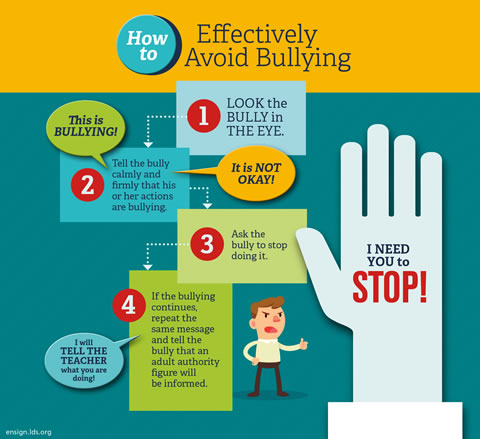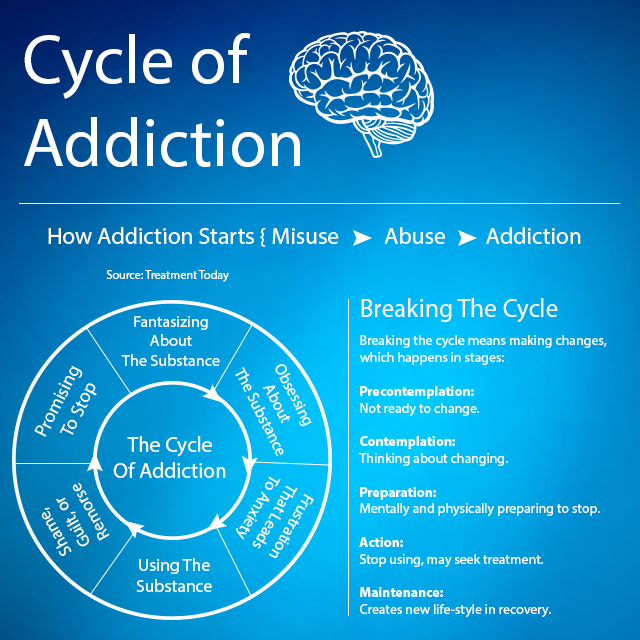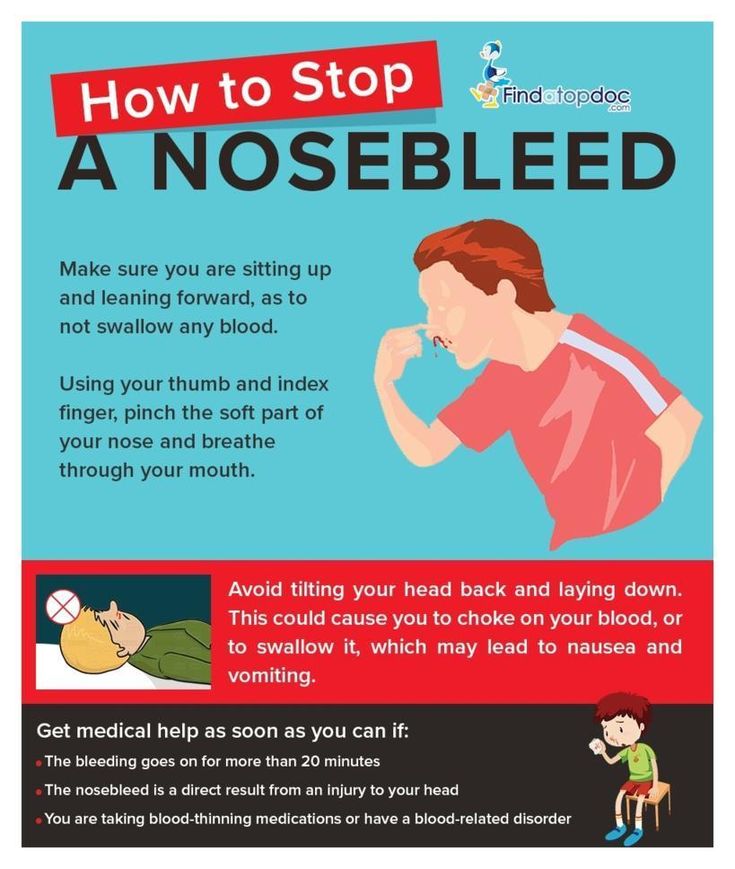How to stop fantasizing
How to Stop Fantasizing in 4 Steps – Stop Maladaptive Daydreaming
Fantasies and daydreams are closely linked together. While they aren't perfectly synonymous terms, they do both involve imaging a hypothetical situation or series of events in the mind's eye for a prolonged period of time.
What important to note is that neither fantasies or daydreams are per se maladaptive. In fact, fantasies and daydreams are perfectly rationale and adaptive things to do if they are limited in duration and can help you plan our your real life.
For example, if you go out on a date with someone you may fantasize about them later; imagining what it would perhaps be like to live together, how your schedules would intermingle, and how your individual values could blend. This kind of fantasy is rational and adaptive because it helps you plan for the future by trying to play out how a relationship could hypothetically unfold (so, if you see conflict on the horizon you can get out of the relationship before it goes on for too long).
Likewise, if you're currently in college and studying chemistry you may fantasize about being a doctor. This is perfectly rational and adaptive because you're trying to play out in your mind - in the limited way that you can - what the pros and cons of being a doctor are, and whether this is something you'd really like to dedicate a non-trivial amount of your life towards.
However, with all of that being said, fantasies can quickly from being rational and adaptive to irrational and maladaptive. This can occur because:
- One's fantasies have grown abstract and no longer serve any useful purpose (e.g., your fantasizing about being an entirely different person)
- One's fantasies are taking up an increasingly large part of one's day
- One's fantasies are actively harming one's life; perhaps by making them distracted during school, work, or social gatherings
Fantasies almost never start as maladaptive. instead, they start as pleasant endeavours that slowly morph over time.
Fortunately, the way in which you stop fantasies is not that different that how you stop maladaptive daydreaming (as both, practically, are very similar if the fantasies are excessive).
While I've written a whole book on maladaptive daydreaming - which would certainly be helpful for those looking to stop their fantasies - below is a short four-step process you can being to implement right away:
How to Stop Fantasizing
In this post we'll be covering a four-step process for overcoming one's maladaptive daydreams. If you'd like to go directly to any one of the steps, you can click the links below:
Step 1: Write Down Your Fantasies
Step 2: Ask Yourself Why the Fantasies are Occurring
Step 3: Turn Your Fantasies Upside Down
Step 4: Create a 'Circuit Breaker' for Your Fantasies
Step 1: Write Down Your Fantasies
One of the remarkable things about fantasies is that individuals will play them through in the head for endless hours, but never actually write down what they are.
This is partly because when fantasies remain in your head they keep themselves as purely locked away inside of you. When you commit your fantasies or daydreams to paper, they suddenly become more real.
Many of those who maladaptive daydream find the process of actually writing down their daydreams to be remarkably embarrassing, even if they never show what they've written to anyone.
Chances are when you write down your fantasies - using pen and paper - you'll be slightly embarrassing about what you write. You may even feel a nagging pull to not write down the full extent of your fantasies as it's too embarrassing to even admit to yourself.
Note: If you have excessive fantasies, it may also be helpful to complete the maladaptive daydreaming test as well.
Step 2: Ask Yourself Why the Fantasies are Occurring
The next step is to try to study your fantasies and ask yourself why they rationally could be occurring.
Almost all daydreams and fantasies have some kind of rational basis, even if they seem on the surface to be entirely irrational.
For example, if you fantasize about being a famous actor, singer, or sports start that seems entirely irrational (in particular if you have no talent in those areas!). However, it could be viewed as a rational consequence of wanting to feel pride in what you do, or to be admired by strangers.
Just like in step one, take out a pen and paper and begin to explore rational reasons for how your fantasies.
If you need a little help, try answering the following questions:
- How could my fantasies have actually helped me at one point?
- What attributes do the main characters in my fantasies have that I do not have in real life?
- Why am I fantasizing about things that are so far-fetched? Why aren't I fantasizing about things that are more likely to happen in the future?
Step 3: Turn Your Fantasies Upside Down
In step two you will hopefully have come up with a few rational reasons for your fantasies having arisen. In order to stop your fantasies, you can use these rational reasons to turn your fantasies upside down.
So, for example, if you were to fantasize about being a famous celebrity of some kind (as we discussed before) you may have said the rational reason for why you began down this path of fantasy was because you wanted to be admired by strangers.
To stop your fantasies, you can fantasize about the downsides of celebrity. Including that not everyone will like you. In fact, quite the opposite! Try fantasizing about what the terrible days of being a celebrity would be like; the anxiety, stress, and self-doubt that occurs for all of them.
Likewise, if you fantasize about being in a relationship with someone, you can imagine those mundane days you would spend with them in which their worst attributes were clearly on display.
In the end, almost everyone engaging in fantasies because they are comforting. Because of this, almost all fantasies involve lots of happy or rewarding moments with very few (in any) troubling aspects.
What you're doing in this step is not turning your fantasy into a nightmare, but rather just making your fantasy less appealing by illustrating to yourself the downsides of this hypothetical life you're fantasizing about.
It may all seem a bit silly to try to consciously trick your brain like this. But remember that excessive fantasizing - like maladaptive daydreaming - is itself irrational. If it were easy to stop, then everyone would! However, since it's not easy to stop these intrusive thoughts you need to play these little tricks on yourself to make your fantasies less appealing.
Step 4: Create a 'Circuit Breaker' for Your Fantasies
The final step involves creating a circuit breaker for your fantasies. What this means is trying to create some way to stop from continuing your fantasies while you're in the midst of them.
In other words, don't bring your fantasies to their natural end. Instead, as soon as you realize you're drifting into a fantasy attempt to stop it right away.
The best way to do this is to take multiple deep breaths in and out while trying to clear your mind whenever you realize you're fantasizing about something. Alternatively, you could begin playing a certain kind of music, checking the news, or otherwise trying to distract yourself.
What you want to begin to do is be able to notice when you're fantasizing and never let the fantasies reach their organic conclusion. This will make engaging in the fantasies to begin with much less appealing.
Conclusion
The difficult reality of stopping fantasies is that it really shouldn't be that hard, but yet it is.
The best way to stop fantasizing about something is to try to rationally deconstruct why these fantasies began in the first place and then utilize what you're learned through that process to make your fantasies less appealing. Finally, you can institute a circuit breaker, as discussed in step four, to make sure that whenever you engage in fantasies you have an ability to stop it before it reaches its natural conclusion (thus making future fantasies much less appealing).
Stopping fantasies can seem like a daunting task. Many try to do it for months or years unsuccessfully. But when you follow a system - even a simple one like what was discussed above - it can make it all much easier.
If you want even more tricks and techniques for stopping intrusive and distracting thoughts, the maladaptive daydreaming book will undoubtably contain some very helpful guidelines. Many have gone through the book due to their excessive fantasies because ultimately both fantasizing and maladaptive daydreaming involve having unwanted thoughts entering the mind, thus distracting one from fully living out their real life.
As always, I wish you the very best of luck!
When Pleasure Fantasies Cause Distress, What Can You Do?
Source: Flicker.com/Taric Alani
“The mind has a mind of its own.”
If your mind has ever latched onto an upsetting thought and not let go, you know the truth of this old saying. Upsetting thoughts sometimes even reach the level of obsessions, defined as “repeated, persistent and unwanted urges or images that cause distress or anxiety.”
Much has been written about dealing with anxiety-related obsessions and their kin: catastrophic thinking and persistent worries. (See here and here, for example.)
(See here and here, for example.)
But can losing yourself in happy fantasies ever cause distress? Can delightful scenarios that you spin in your mind become uncontrollable obsessions and cause harm?
I began thinking about this when Powerball Fever struck the American population recently. By the time this blog post is published, you may know the winner(s) of the fattest Powerball purse in history. Meanwhile, I’ve listened to many otherwise sensible people tell stories about what they would do if they won. And why not? It’s fun to play, “If I were rich.” You can speculate about what you might give to yourself, your family, your friends, and your favorite charities. You could even fill your bathtub with money and bathe in it like Scrooge McDuck! Hey, it’s your money!
Daydreams and Fantasies: The Upside and the Dark Side
Source: Pixabay.com
“What’s the harm of daydreaming?” you may ask. Well, usually none. In fact, daydreams and fantasies not only provide fleeting pleasures; they can also teach us valuable lessons. Your reveries may provide clues to your personal and career goals, for example. You can rehearse and invent dramas that could actually help you cope with a variety of real-life situations. You could get a vision for how to re-organize your house, write a novel, invent a new tool, or make a unique contribution to humankind. The energy from a good fantasy can also provide motivation to take action.
Your reveries may provide clues to your personal and career goals, for example. You can rehearse and invent dramas that could actually help you cope with a variety of real-life situations. You could get a vision for how to re-organize your house, write a novel, invent a new tool, or make a unique contribution to humankind. The energy from a good fantasy can also provide motivation to take action.
But what if your rose-colored fantasies become obsessive, addictive, unmoored from reality, or could lead you to violate the rights of others? Here are four types of common happy fantasies experienced by almost everyone that can also have a dark side.
Gambling Fantasies
Winning the Powerball lottery, the jackpot at the casino, the poker game—you’re feeling lucky!
The upside: Just thinking about being wealthy can be a pleasure in itself. By deciding how you would spend your imaginary treasure, you could even learn something about yourself, your values, and your commitments.
The dark side: Dreaming about how you’ll spend your Powerball fortune could cause you to buy more tickets than you can really afford, distract you from the real demands of work and personal life, cause procrastination, and let you down hard when you don’t win. Worse, gambling can become an addiction. People have destroyed their finances, careers, family life, and personal integrity by neglecting everything else for the thrill of chasing a big payout.
Cravings Fantasies
You are trying to quit cigarettes/alcohol/drugs. But you have a craving. You tell yourself, “I remember how much _______ (insert favorite substance here) helped when I felt stressed out. Oh, those were the days!” Then you decide to visit your friend Bob who, coincidentally, still indulges in your favorite substance.
The upside: You start to remember how much you enjoyed the addictive drug... wait a minute. There's very little upside here because the potential dark side is enormous.
The dark side: Your cravings could bring you to the doorway of relapse, with all the risks that entails. Please read the Detox section immediately!
Success and Achievement Fantasies
The upside: Imagining that “You… Are… The American Idol!” can be harmless fun that will give you a brief experience of joy. Other fantasies can be equally enthralling—daydreaming about winning a 10K, finding a publisher for your novel, or gaining fame and admiration for your start-up business. These fantasies can become real for a happy few, a guide to authentic interests for others, or just low-cost self-created entertainment. Look for career clues hidden in those fantasies. You’ve got to have a dream!
The dark side: It’s natural to have glorious fantasies of success. The downside is usually small. But sometimes there is a cost to daydreaming too much. Are your fantasies keeping you from making realistic career choices? Are you substituting fantasy for genuine forward steps in your personal or professional life?
Crushes and Sexual Fantasies
The upside: The high of falling in love. Intoxicating sexual fantasies. A fantasy lover who is perfect in every way. Sometimes these fantasies fill you with energy, creativity, and ideas for self-improvement so that you can become more worthy of your imaginary beloved. If you and your crush are both single, these feelings could be the “start of something big,” as the old song says.
Intoxicating sexual fantasies. A fantasy lover who is perfect in every way. Sometimes these fantasies fill you with energy, creativity, and ideas for self-improvement so that you can become more worthy of your imaginary beloved. If you and your crush are both single, these feelings could be the “start of something big,” as the old song says.
The dark side: Although “...a person has a right to any feeling, fantasy, or thought,” some sexual fantasies can get out of control, as psychologist Elizabeth Powell points out here. If your fantasies get too strong or disturb you, check in with a therapist. If you have a fierce crush on someone who is unavailable, there’s a danger that you might withdraw energy from your real relationships. A few people become unhinged because of their crushes, like the astronaut who tried to kidnap her rival. Of course, anyone with thoughts of harming themselves or others should make the call to a mental health professional or crisis hotline ASAP.
3 Ways to Detox
Here are three ways to cool down those pleasurable thoughts that have gotten out of control:
1. Mental Detox
Mental Detox
If your “harmless” daydreams and fantasies start to take on an obsessive quality, they can become just as disturbing and harmful as anxiety-laden obsessions. To dim some of those all-too-vivid fantasies, try the mindfulness suggestions below:
- Rather than trying to control your mind, observe it in action and remind yourself that your fantasies are just thoughts. You can even murmur the phrase, “just thoughts,” to yourself to underscore the idea.
- Label your repeating fantasy. Your label can be simple like, “Romantic getaway.” Add a number for how many times you estimate that you’ve had this fantasy: “Romantic getaway fantasy, Number 102.” “Powerball fantasy, 501,” you could tell yourself. Labels reduce the intensity of your feelings and activate the rational side of your brain (as described in this research).
- Combine self-compassion with a little tough love. It's natural to want to love and be loved, feel good, and have money and success.
 Give yourself some kindness for these all-too-human yearnings, but don't let the dark side take over.
Give yourself some kindness for these all-too-human yearnings, but don't let the dark side take over. - Realize that the mind likes to invent stories and fantasies. Remind yourself that you don’t need to identify with your upsetting daydreams and stories. They are not you!
- For cravings, remind yourself that cravings last only 5-15 minutes. They will pass if you just wait them out. Meanwhile, use the "5 Ds" — delay, distract yourself, drink a glass of water, discuss the cravings with a friend, or deeply breathe.
2. Talking Detox
If your fantasies are causing mental suffering, and you can’t seem to control them with self-help, try some "other-help." Talk to someone, whether a friend, the people in a 12-step group, or a therapist. Learn why your fantasies are plaguing you right now. Are you having a temporary problem or is there a deeper issue?
3. Behavioral Detox
Since the mind has a mind of its own, you may not always be able to control your thoughts. But you can decide to control your behavior.
But you can decide to control your behavior.
- Avoid any people, places, or things that tend to trigger the pleasurable but addictive thoughts. Don’t fall for the “cover-up thoughts” that disguise your urge to indulge in an addiction. (“I haven’t seen my old friends from the bar for a while. I’ll just drop by for a minute to see how they’re doing.”)
- Re-arrange your environment so that temptation is reduced.
- For success fantasies, ask yourself what you would need to do to make your success fantasy a reality. Sign up for a class? Take voice lessons? Talk to someone in a potential career field? Read a book? Take one small step forward.
- Instead of obsessing, pour some of the fantasies you are having about your crush into making your current relationship better or more exciting. Or, use that erotic energy to meet new people or start a creative project.
Balancing Fantasy and Reality
Fantasies and daydreams can be soothing, fun, and/or thrilling. They can often lead us to understand and act on our deepest values, desires, and goals, propelling us toward a more meaningful life. But some pleasurable fantasies can morph into obsessions or even become addictions.
They can often lead us to understand and act on our deepest values, desires, and goals, propelling us toward a more meaningful life. But some pleasurable fantasies can morph into obsessions or even become addictions.
Psychiatrist Ethel Person summarizes the positives and negatives of daydreams and fantasies this way: “Fantasies are indispensable to having a fulfilled life, yet there has to be a happy medium. Without fantasies your life is impoverished. If you're flooded with fantasies, there's no reality. You need fantasy, but there has to be a way to put the brakes on.”
A mind in flow, with the right balance between reality and fantasy, might be a greater treasure than a Powerball jackpot.
How have you coped with runaway fantasies? Can you think of other types of happy fantasies that might have a dark side? Please share in the comments.
© Meg Selig, 2016
If you liked this post, you might enjoy my posts on these topics:
- “3 Ways to Stop Imagining the Worst”
- “Why Saying Just One Word Can Calm Runaway Emotions”
- “13 Small Decisions That Will Ease Anxiety”
Scroll through my book Changepower! 37 Secrets to Habit Change Success.
"How to stop sinking into fantasies and learn to concentrate?"
This year I have to pass a difficult exam, for which I have been preparing for a year. The results will affect the future life.
But there is one difficulty that I can't cope with. I'll call it an overindulgence in fantasy. This manifests itself in the fact that, while listening to music, I fantasize some pleasant situations and spend too much time on it (3-4 hours a day). I understand that I could spend these hours usefully, but the love of fantasies only gets worse with time. I would like to be more in reality. nine0003
It is also quite difficult for me to concentrate on the subject being studied, thoughts are constantly spinning in my head: what needs to be done, to whom to write, what to learn. This does not allow me to immerse myself in the matter with my head and greatly interferes with preparing for the exam.
Can you advise how to stop fantasizing too much and learn to immerse yourself in the subject being studied?
Can yoga help in this situation?
Elena, 25 years old
One can advise to practice meditation simply because it is a conscious choice and conscious practice, during which we devote time only to ourselves, doing it in a specific way. Your fantasies, obviously, are such states into which you abruptly "fall", and then for a long time you cannot get out of them. Perhaps you do not want to return to the real world because something does not suit you in life. Ask yourself this question and try to make adjustments. If the reality is rich and interesting enough, you will not want to run away from it. nine0003
Your fantasies, obviously, are such states into which you abruptly "fall", and then for a long time you cannot get out of them. Perhaps you do not want to return to the real world because something does not suit you in life. Ask yourself this question and try to make adjustments. If the reality is rich and interesting enough, you will not want to run away from it. nine0003
Try a simple to-do list for the day with a rough time allocation for each activity. A list of tasks that will remain simple to complete will help you focus on the current moment.
Yoga is also a here and now practice. It doesn't matter what we want, what matters is what the body allows us today. We must listen all the time to what it can and wants today. Asanas for balance cannot be performed if you are not concentrated.
Also, the problem can be aggravated by the fact that you do not allow yourself to rest. It turns out that you always owe something. Allow yourself hours of rest, then the work will be more efficient, and you will not need to “steal” time to be distracted by dreams. nine0003
nine0003
While none of these practices is a panacea on their own, they can help increase efficiency.
Photo source: Getty Images
New on the site
“No family, no friends, no career limit. What am I living for?
“My wife cannot forget my betrayal and hits me in the face. How to build relationships?
Four minutes is enough: Psychologists figured out how first impressions affect the outcome of a date
Schedule for the day: 6 relaxation exercises - try today
Management, management and creativity: how to grow your business in difficult times - 11 coaching tips
How to love yourself more than others: advice from a self-acceptance specialist coronavirus
Everyday fantasy: how and why do we invent another life?
Everyday fantasy is our reaction to some event in the outside world. It is woven into the context of everyday life, and we do it all the time, but we do not pay much attention to such fantasies. And we are very surprised when we hear that such an occupation can be called a scientific term, that it can be explored. nine0003
nine0003
As a rule, having become interested in this topic, a person begins to observe himself, and he himself wants to share: “It happens to me like this, like this, and also like this.” Several hundred people filled out an anonymous questionnaire on daily fantasy, others gave anonymous interviews. As a result, we managed to collect a bank of the most common fantasies.
Revenge or forgive
We studied the reactions of adults who experienced something unpleasant in transport (for example, they stepped on their feet). Some "quench" their anger and find other ways to calm down, while others, like a child, imagine an alternative development of the situation. nine0003
Suppose one woman stepped on the foot of another with a sharp heel. And the second one imagines how the "offender" comes out onto the platform, and she, the "victim", beats her with a whip, punishes her. Another option: the man stepped on the girl's foot and called her names at the same time - because she squealed. The girl can imagine that in fact he behaved like a gentleman, was horrified by his act, apologized, bowed and showed himself as well as possible.
The girl can imagine that in fact he behaved like a gentleman, was horrified by his act, apologized, bowed and showed himself as well as possible.
Men undress, women change clothes
Sometimes adults, like children, fantasize for fun because they are bored. For example, a person is riding the subway, and he has neither a newspaper nor a book, but there is energy inside. He begins to look at those who are sitting opposite. Both men and women (not all, but many) often indulge in fantasizing about those they are looking at.
Adults also make imaginary friends, but they rarely talk about it - they are afraid that they will be mistaken for mentally ill
Women very often "dress up" those who, in their opinion, are poorly or tastelessly dressed. At the same time, they mentally try on the clothes of others on this person. It's a bit like how girls cut out paper dolls and put different paper dresses on them. nine0003
Men often - much more often than women - come up with fantasy biographies of people sitting opposite - complex, thoughtful, with many details. Men are very fond of mentally undressing women and imagining what they look like without clothes. Women do not admit to such fantasies in relation to men.
Men are very fond of mentally undressing women and imagining what they look like without clothes. Women do not admit to such fantasies in relation to men.
What do Carlson and Angelina Jolie have in common? Children create imaginary friends. A famous example is Carlson, who lives on the roof. Some children invent a friend for themselves so that it is not scary to walk through an empty yard. It is usually someone big and strong—sometimes a human, sometimes an animal. “When I’m with him, I’m not afraid, if anything, he will help,” “he walks next to me, here, on the left side,” says the child. Young children are less self-aware, and according to them, imaginary friends appear to them themselves. Older children say: "When I want, he will appear", "I call him." nine0003
Adults also make imaginary friends, but they rarely talk about it - they are afraid that they will be taken for mentally ill. People very often have imaginary conversations with absent or deceased loved ones. Many come up with an ideal partner for themselves, hoping that such a person can meet in real life.
Young spouses have similar fantasies. If it seems to a woman that her husband is not tender, affectionate and attentive enough, a “understudy” may appear in her fantasies - an imaginary husband No. 2 with a romantic name, for example, Robert or Albert. The woman mentally "puts" this Albert on an empty chair and mentally talks to him. At the same time, her real husband sits nearby and reads a newspaper. Men, instead of their wife, imagine Angelina Jolie or another attractive celebrity, and do this quite often. They explain this by saying that "it's more fun that way." The wife does not notice this and thinks that all emotions are intended only for her. nine0003
Men and women fantasize differently
Everyday daydreaming has many functions. For example, you can plan and imagine the future: thinking about an upcoming meeting, a person can “lose” in his head the possible options for how it will go. People are almost always aware of such fantasizing, they consider it acceptable. In the same way, you can "process" the past.
In the same way, you can "process" the past.
It is important that in the real world it is interesting for a person that he loves something, that he does something well
Men in such cases turn out to be more simple-hearted: they go over the events in the form in which they really happened. If there was something bad, they figure out what else they could do. Women also do this, but unlike men, they tend to turn even good things into beautiful ones. Thinking about yesterday's reception, at which an important person for her could not be present, a woman can imagine that he did come. And thus create a picture even more wonderful than it was in reality. nine0003
Staying in touch with reality
Being aware of our fantasies, we discover wonderful possibilities for ourselves: since the invented is our own creation, we can control it, we can try to better design the future or better process the past. Instead of remembering again and again how terrible everything turned out, you can imagine an option in which we behaved much better than in reality.














